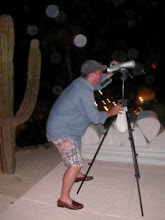When their grandkids ask today's CEOs, "What did you
do in the Great Class War, Granddaddy?" it will be enough to be able to
answer: "Well, sweetie, I didn't get flattened." Tuesday night's
State of the Union address offered much to business, but it also showed that
companies will be something of a battleground across which the forces of 2012
populism—from the left and the right—will wage their campaigns, tank treads
grinding, artillery pounding. It's "class warfare," says Daniel Loeb, founder of
hedge fund Third Point, after the speech. He says he and his CEO counterparts
are "sick and tired" of getting hammered for "engaging in the
capitalist system." "I can't get a voice in D.C.," grumbles
Barry Silbert, chief executive of SecondMarket, which focuses on alternative
assets. Populism is "good politics, but it is bad economic policy,"
adds Daniel Yergin, the chairman of advisory firm IHS CERA, speaking Wednesday
at a gathering of The Wall Street Journal CEO Council. No speech aimed at working
America would be complete without a shot at China. Mr. Obama said he would
create a new office to investigate "unfair trading practices in countries
like China." But Mr. Obama leaned on a thin reed in underscoring his tough
line: a tariff, pressed by the United Steelworkers union, that the
administration invoked on Chinese tire imports in 2009. Mr. Obama said that
"over a thousand Americans are working today" as a result. The tire
industry, on the other hand, says the tariff got passed along to consumers as
higher tire prices and retailers got hurt. Manufacturers say few jobs were
affected, since imports lost from China were replaced by imports from other
countries. After the speech, the U.S.-China Business Council, a trade group,
said the tariff hasn't had "any positive effect" on jobs. The U.S.
has booked more than $700 million in revenue from the tariff. Passed along to
consumers, even in part, that's a stiff price to pay for those 1,000 jobs.
WSJ
(SN)
skip to main |
skip to sidebar

Read
About Me

- Marc A. Ross
- Washington, DC, United States
- Marc has an extensive background in business development for companies as well as directing the advocacy operations, communications efforts, fundraising programs and public affairs for nonprofits, corporations and political campaigns for the highest offices in the United States and the United Kingdom. Marc is available for consulting, workshops, panels, interviews, training sessions, advice, commentary and speaking on all things Advocacy 2.0. Marc can be reached via email by sending a note to marc (at) 2ndsix.com or by twitter at @microadvocacy.
My Blog List
Blog Archive
-
▼
2012
(17)
-
▼
January
(16)
- NYT Profile: Lael Brainard
- FT: Apple looks to China’s ‘staggering potential’
- WP: Five myths about China’s power
- Telegraph: Davos 2012: China and Africa to be cent...
- Project Syndicate - Stephen S. Roach: China’s conn...
- FT – Book Review – Nick Lardy’s Sustaining China’s...
- AP: Caterpillar post 60% jump in Q4 profit on stee...
- WSJ – John Bussey: In fog of warfare, a message to...
- Economist: China -The paradox of prosperity
- WSJ – Mike McConnell, Michael Chertoff, William Ly...
- CSM: China's economy may surpass US before 2020
- Reuters: China source of hope and worry for Davos ...
- Reuters: Cooling China worries some multinationals
- MW: China’s yuan set for more international role
- Businessweek: China's next boss has some capitalis...
- NECN: Joe Biden: ‘We’re not the job creators’
-
▼
January
(16)